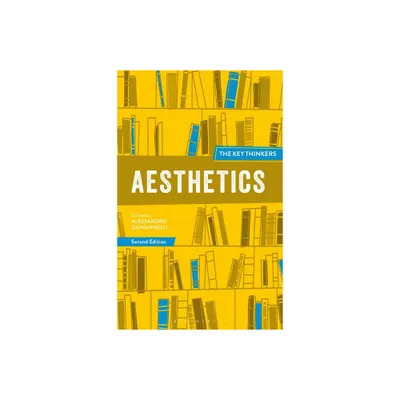Home
Sourcebook of Experiential Education: Key Thinkers and Their Contributions / Edition 1
Loading Inventory...
Barnes and Noble
Sourcebook of Experiential Education: Key Thinkers and Their Contributions / Edition 1
Current price: $230.00


Barnes and Noble
Sourcebook of Experiential Education: Key Thinkers and Their Contributions / Edition 1
Current price: $230.00
Loading Inventory...
Size: OS
*Product Information may vary - to confirm product availability, pricing, and additional information please contact Barnes and Noble
Experiential education is a philosophy and methodology for building knowledge, developing skills, and clarifying values by engaging learners in direct experience and focused reflection. To understand experiential education, what'should one be reading? This sourcebook introduces philosophers, educators, and other practitioners whose work is relevant to anyone seeking answers to this question. Following brief snapshots of John Dewey and Kurt Hahn, the book is organized in four sections:
Philosophers and Educational Theorists
Nature Educators and Outdoor Educators
Psychologists and Sociologists
School and Program Founders.
Each chapter focuses on an individual whose philosophy and practice exemplify a biographical and historical model for reaching a deeper understanding of experiential education. An appendix includes short biographical sketches of forty-five additional people whose contributions to experiential education deserve a closer look. This volume provides a much-needed overview and foundations for the field – for students in courses addressing experiential education, challenge education, outdoor experiential education, recreation education, and related fields; for learning theorists and curriculum specialists; for experiential educators; and for educational philosophers.
Philosophers and Educational Theorists
Nature Educators and Outdoor Educators
Psychologists and Sociologists
School and Program Founders.
Each chapter focuses on an individual whose philosophy and practice exemplify a biographical and historical model for reaching a deeper understanding of experiential education. An appendix includes short biographical sketches of forty-five additional people whose contributions to experiential education deserve a closer look. This volume provides a much-needed overview and foundations for the field – for students in courses addressing experiential education, challenge education, outdoor experiential education, recreation education, and related fields; for learning theorists and curriculum specialists; for experiential educators; and for educational philosophers.


















